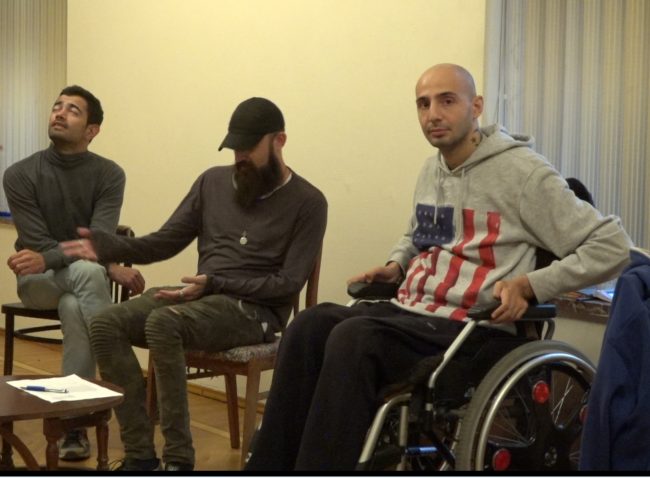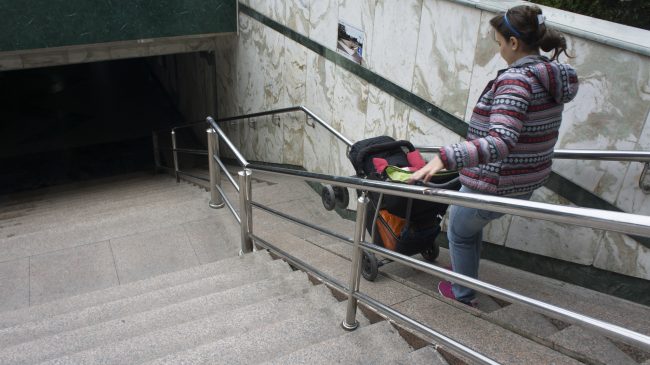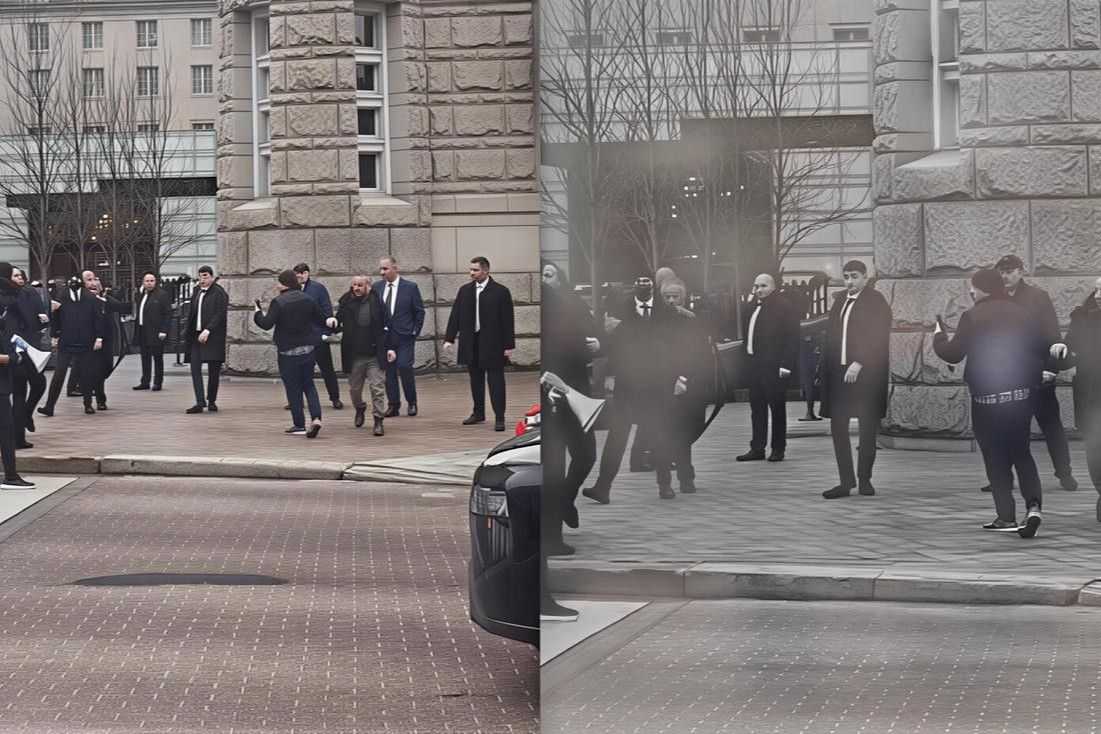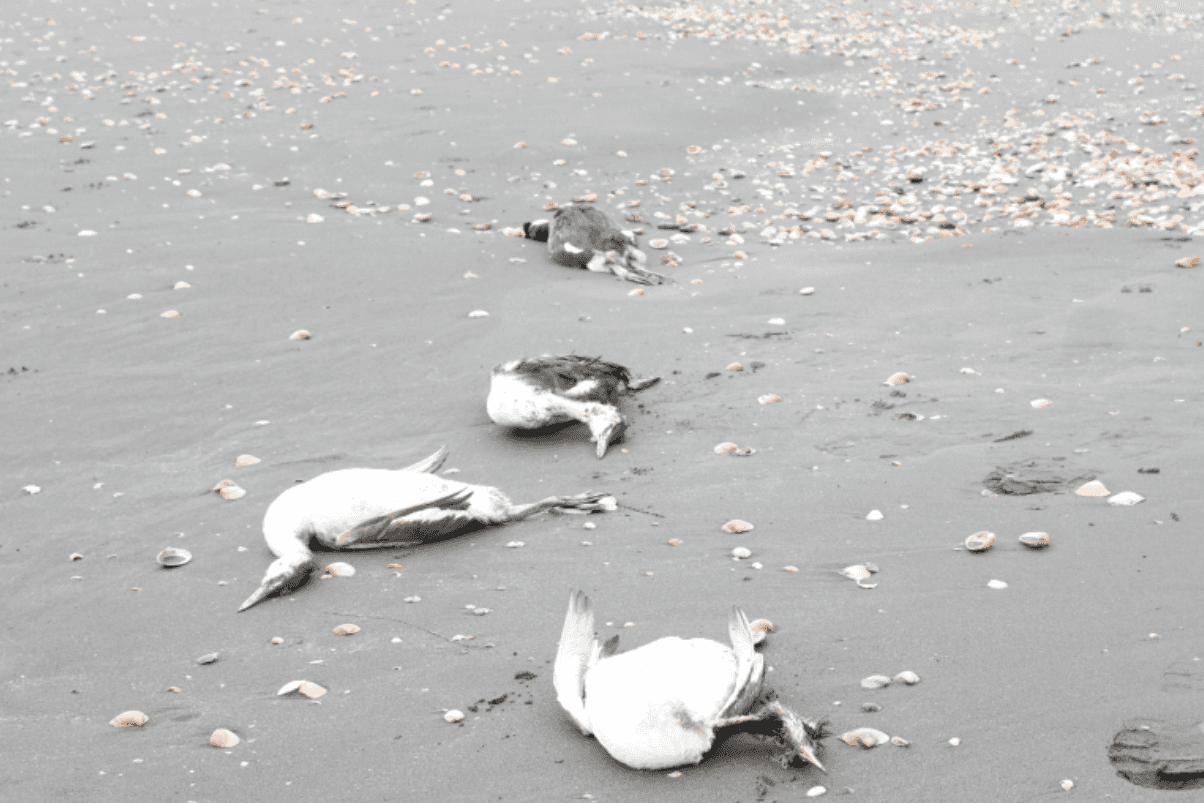

 People with disability in Azerbaijan are trying to craft normal lives. But their efforts are hampered by badly designed infrastructure, discrimination at every turn, and flawed legislation.
People with disability in Azerbaijan are trying to craft normal lives. But their efforts are hampered by badly designed infrastructure, discrimination at every turn, and flawed legislation.
[Read in Azerbaijani — Azərbaycan dilində oxuyun]
In 2009, when Orkhan Adigozal was 19, he suffered an injury after which he lost the ability to get around on his own. ‘While jumping into a river I lost balance. I hit myself hard. Since then I get around in a wheelchair’, Orkhan tells OC Media.
Before the injury, he led an active lifestyle. Most of his time he spent at the gym, he wrestled, and was a coach. His life changed in an instance, the gym being replaced by a hospital ward.
‘At first it was very difficult, but then I adjusted to the fact that everything that happens in our life is good for us. Even if we are not able to realise this immediately’, he says.
Orkhan did not become isolated after the accident; his condition has not prevented him from leading a social life and meeting girls. ‘It’s not a problem for me to create relationships. Many people think that if a person has a disability they can’t meet anyone or have problems with sex, but this is no so’, Orkhan says.
He continued his studies, began writing articles, and writing a blog about the problems of people with disabilities. Among these problems, getting around occupies a top place.
Leaving the house — a special challenge
Orkhan lives in an old nine-storey Soviet-era building in Baku, on the sixth floor. Apartment buildings like these often have broken stairs at the front and small uncomfortable lifts, in which a wheelchair can barely squeeze. Another problem is that the lifts here stop between floors.
‘I have to get someone’s help first to get in, and then get out of the lift’, he says.
He finds it difficult to get around in the city. Since the infrastructure is ill suited for people with disabilities, he has to seek help whenever he goes out, ‘I always have a friend of a relative around’.
Orkhan often has to use a taxi, which hurts his budget. In the city’s modern buses, known as the BakuBus, there are special reclining ramps and spaces for people with disabilities. But these do not cover the entire city. Those living in peripheral areas or outside the city have just one option left — taking a taxi.
While it’s theoretically possible to catch a bus, this comes with difficulties. Orkhan has to travel some distance in his wheelchair to reach the bus stop. In winter, he tries not to leave the flat too often, because of the cold weather and the bad road. ‘I have an electric wheelchair, but I rarely use it, it’s heavier than the usual one’, he says.
Sometimes bus drivers don’t stop. ‘Drivers can find thousands of reason not to take me. They either say that they are in a hurry or that there’s too little free space’.
The city is a minefield
Using the city’s subway system is almost inconceivable for people with disabilities; the Baku Metro was not designed for people in wheelchairs. It’s against safety regulations to use a wheelchair on the escalators, and installing lifts in the deeper stations is impossible because of a lack of space, Nasimi Pashayev, head of PR for the Baku Metro told OC Media.
Ramps can be installed in the shallower stations, and lifts have been incorporated into two newer stations, ‘Bus Station’ and ‘Memar Ajami-2’, which opened in 2016, he added.
The chairman of the Union of Free Architects Zemfira Budagova says that ‘during the Soviet era, standards were broken for construction of buildings. Special houses with lifts and wide aisles were built for people with disabilities, but there were no conditions for people with disabilities in ordinary houses’. She adds that many new buildings now have ramps and large lifts.
According to Davud Rahimli, president of the Union of Disabled People Organisations, an umbrella organisation of disability rights groups in the country, under the UN Convention on the Rights of Persons with Disabilities, houses should be built with the needs of people with disabilities in mind. But Azerbaijan’s 2012 Urban Development Code, which sets out city development measures, has no mention of people with disabilities.
Azerbaijan’s building regulations replaced the old Soviet rules in 1999. According to the regulations, when constructing any residential building or settlement, conditions should be created for the free movement of people with disabilities and physical limitations. The height of ramps should not exceed five centimetres in elderly homes and homes for people with disabilities.
Orkhan says that in Azerbaijan ‘people have got used to seeing almost nobody with disabilities on the streets’. Although the major Baku shopping centres and Heydar Aliyev Centre are designed to meet the needs of people with disabilities— there are lifts and gently sloping ramps — most public spaces are not.
Underground road crossings are impossible for people in wheelchairs to move through. Wheelchair ramps should normally have a slope of 10–12 degrees. The ramps here are narrow, with only enough space for a baby carriage to fit, and steep — sloping 40–45 degrees. Without help, descending them in a wheelchair is impossible.

Everyday discrimination
People with disabilities often face discrimination during the job hiring process. Orkhan was fortunate in this respect — he has worked in local and foreign companies, consulates, and participated in projects that promote social inclusion.
Even he says he has often faced discrimination. ‘The behaviour of bus drivers is discrimination, the size of the disability allowance of ₼140 ($82) is also discrimination’.
He also notices the undue attention of others. ‘Even an unconventionally dressed person attracts attention. What can be said about a person in a wheelchair?’, Orkhan says.
Many people don’t think about the terminology they use, notes Orkhan, but this is important for him; people with disabilities are not happy being called ‘invalids’.
‘We don’t call a person with mental problems a psycho. Therefore, it is more appropriate to say ‘people with disabilities’. This terminology is adopted in the UN Convention, to which Azerbaijan is a signatory, it is an international practice’, he says.
According to the Union of Disabled People Organisations, around 6% of the total population have a disability. This includes around 200,000 women, 370,000 men, and 65,000 children.
Integration in society
Thirty-nine-year-old Gunay Mammadova had everything to feel happy about: a loving family and a successful career as a lawyer. But three years ago she lost all sight as a result of a serious hereditary disease.
‘I had to say goodbye to my plans for a career and a successful future’, she says. She is accompanied everywhere either by her daughter, father or husband. ‘But I can make small purchases in the store. I move around myself over short distances’, Gunay tells OC Media.
She says she does not face discrimination, ‘on the contrary, I am always treated with care, sometimes people in buses want to walk me home or to another place’. Gunay was left without work, but entered the First Medical College.
‘Here at the faculty of nursing, they opened the faculty of therapeutic and rehabilitation massage, especially for people with sight disabilities of the 1st and 2nd degrees. I’m studying there’, she says.
She believes that taking the initiative is the best way to integrate into society. ‘People who can’t see often sit at home, become isolated in themselves, in their way of life. Such courses are the basis for their integration into society’, Gunay says.
Social protection on paper but not in practice
According to Davud Rahimli, there are 14 rehabilitation centres for people with disabilities in Azerbaijan, but regional centres are poorly equipped and lack competent staff. He says that because of this, people with disabilities from the regions are forced to come to the cities, where rehabilitation centres are overcrowded.
In 2005, the government approved a quota system for people ‘in need of special social protection’, which includes people with disabilities. According to the this system, depending on the situation on the labour market, there should be a quota of between 3%–5% of the number of employees in an enterprise.
But these rules are not always followed. If an employer does not fulfil the quota, they will face a fine of three minimum monthly salaries. In reality, however, such fines are rarely implemented.
In 2009, Azerbaijan joined the UN Convention on the Rights of Persons with Disabilities. This document contains 50 articles that are designed to uphold the equality of rights and freedoms of people with disabilities, protect them from discrimination, and ensure their rights to work, receive an education, necessary medical services, and justice, including a guarantee of free movement.
According to Ragimli, there are several organisations that encourage recruitment of people with disabilities. This includes the ADA University (formerly the Azerbaijan Diplomatic Academy), and the ASAN service, which provides government services to citizens. People with disabilities are also often employed in call centres.
But, according to chair of the Citizens’ Labor Rights Protection League Sakhib Mammadov, people with disabilities are often discriminated against during hiring. ‘Now employers will be punished if they do not hire a person with a disability’, he says.
While discussing these changes to the Law on Labour and Pensions in parliament in early 2017, Azerbaijani MP Musa Guliyev stated that people with disabilities of the 2nd and 3rd degree are to be considered able-bodied. Azerbaijan classes disabilities into three categories, with the 1st being the most severe.
With the changes, the authorities would tell employers the type of work a person with a disability can perform, but, this will only be a recommendation.
Rahimli says that excluding people with disabilities from the 1st group constitutes discrimination, and is counter to the UN Convention.
He says that since Azerbaijan’s accession to the UN Convention, new legislation has been under development which should improve the lives of people with disabilities, but their implementation leaves much to be desired.
This article was prepared with support from the Friedrich-Ebert-Stiftung (FES) Regional Office in the South Caucasus. All opinions expressed are the author’s alone, and may not necessarily reflect the views of FES.








